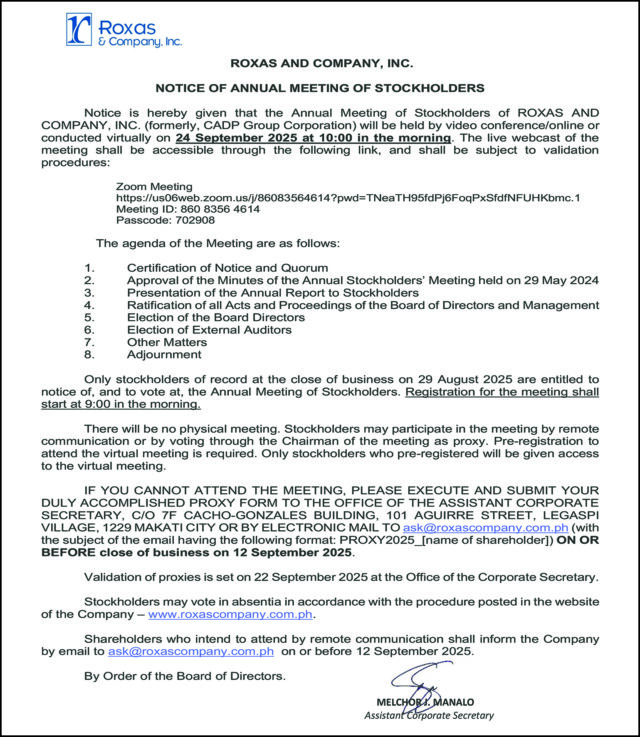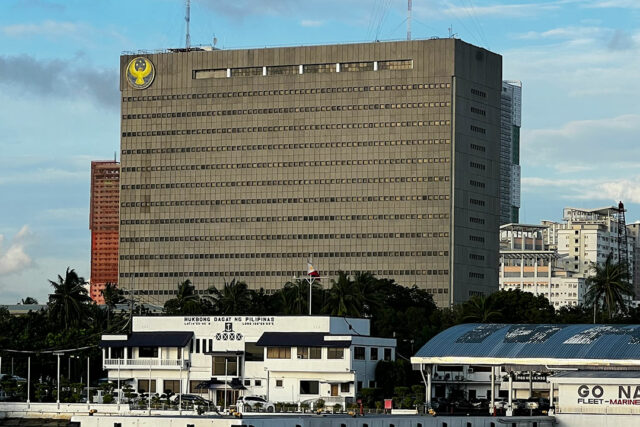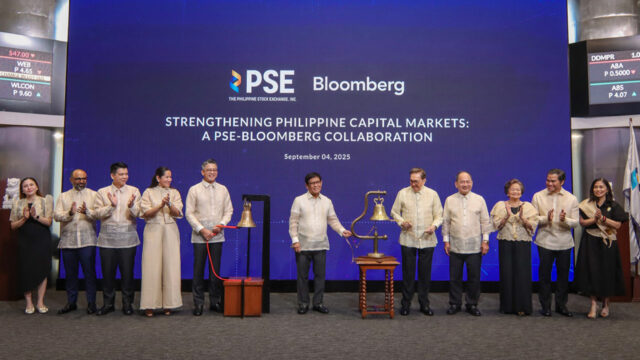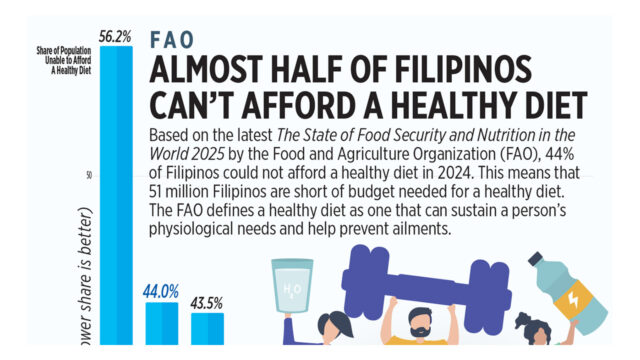By now, most Filipinos have seen, if not memorized, excerpts from Senator Ping Lacson’s much-circulated “corruptionary.” Unlike the entries in Merriam-Webster, Lacson’s version doesn’t define words, it defines a system. It is tailor-made for the digital age: short, graphic, and horrifyingly effective in exposing how billions in public funds have been misused, particularly in the Department of Public Works and Highways’ (DPWH) flood control projects. These are not mere accounting errors, they are systematic acts of plunder.
What once seemed unthinkable has now become painfully clear. Taxpayer money has been siphoned off into ghost projects, unfinished infrastructure, and substandard materials. The general public is only now awakening to the grotesque scale of these abuses. We now understand how luxury umbrellas could trigger the sale of Rolls-Royce vehicles, how a single Patek Philippe watch can command over P11 million, and how one extravagant dinner in Bonifacio Global City can cost three-quarters of a million pesos — for just four people. In a country where more than half of all families identify as poor, these revelations are not just obscene — they are potentially explosive.
Such revelations shorten not only the political lifespans of those involved but also their economic and social credibility. The Bible puts it succinctly: “By their fruits, ye shall know them” (Matthew 7:16).
As discussed in last week’s column, these flood control anomalies raise foundational questions, and not merely about legality, but about basic decency. At this point, the issue is not whether guilt can be proven beyond reasonable doubt. The volume of red flags, confessions, and physical evidence is already overwhelming.
We’ve seen a high-ranking DPWH official casually admit in congressional hearings that he gambled two to three times a month while in office. One might ask: on what salary was he funding this vice? One contractor testified to donating P30 million to a senator’s campaign. That senator, in turn, acknowledged receiving campaign funds from a “friend” who held active government contracts despite clear prohibitions under election law. Meanwhile, the children of these contractors, undeterred by public scrutiny, flaunt their wealth on social media — luxury cars, designer goods, and million-peso watches treated like everyday accessories.
Has decorum been entirely abandoned?
Even a basic inspection conducted by the President, followed by Senator Lacson’s own staff, found numerous non-existent projects in vulnerable, flood-prone areas like Bulacan and Oriental Mindoro. Where structures did exist, the use of substandard cement and steel was evident. The deviation between approved designs and actual builds reveals a dangerous pattern: weakened infrastructure at inflated costs. A cursory review of the national infrastructure budget even shows inexplicable uniformity: identical allocations for vastly different projects across disparate terrains.
This goes beyond poor planning; it reflects a fundamental betrayal of public trust. When legislators, contractors, district engineers, auditors, and bidding committee members all appear to operate in concert — with their families openly enjoying the spoils — the public is justified in assuming widespread collusion. Their lifestyles betray their true income sources. Their own testimonies, sometimes unwittingly, reveal their guilt. “Out of the abundance of the heart, the mouth speaketh” (Matthew 12:34).
How do we begin to dismantle such entrenched corruption? How do we reclaim a sense of integrity in public service?
We must first acknowledge that the current investigations in Congress are compromised. The very lawmakers tasked with oversight are, in many cases, implicated in the anomalies under scrutiny. The annual national budgets they passed are rife with “insertions” — pork-barrel allocations that siphon funds away from public health, education, and truly critical infrastructure. This context casts a long shadow over the objectivity of current Senate and House hearings. No amount of political grandstanding can undo this perception. The ties between lawmakers, DPWH officials, and favored contractors appear too strong to ignore.
One immediate step would be for lawmakers and public officials who may be investigated to voluntarily recuse themselves from proceedings related to transparency and accountability. This is not only prudent but necessary if we are to rebuild public trust.
Another promising development is the recent executive order creating an independent anti-corruption commission with a specific focus on the DPWH. As the civic coalition 1Sambayan correctly points out, this could be a critical move towards ensuring proper use of public funds. But for this initiative to succeed, the President must appoint individuals of “unquestionable integrity, competence, and independence.”
Yet, good intentions are not enough. The commission’s mandate must go beyond investigating and recommending cases to the Office of the Ombudsman or the Department of Justice. It must have real authority, legal and administrative, to enforce its findings and hold both public officials and private contractors accountable.
Otherwise, it risks becoming another toothless body, its reports fated to collect dust, as many Senate Blue Ribbon Committee investigations have in the past. One only needs to revisit the Pharmally scandal to see how detailed Senate findings — such as overpriced PPE and substandard medical gear — never translated into concrete legal action. No officials from the Department of Health or Department of Budget and Management were prosecuted, despite clear evidence of wrongdoing.
The call of 1Sambayan to “identify individuals and entities involved in corrupt practices and recommend appropriate legal action” is not merely sound — it is urgent.
And yet, some of those under scrutiny continue to assert their innocence, even as their lavish lifestyles and public spending habits say otherwise. The disconnect is staggering.
Former Supreme Court Justice Adolf Azcuna recently proposed a powerful idea: under Republic Act 1379, the government has the authority to seize properties that are clearly disproportionate to declared incomes, even in the absence of direct proof of theft. This law allows for the forfeiture of ill-gotten wealth and must be used more aggressively starting with our lawmakers and DPWH officials.
Private contractors should also face the full force of the law. Their actions may constitute not just graft and corruption but also fraudulent practices, malversation of public funds, and falsification of documents. By collecting payments for ghost or substandard projects, they violate their legal and contractual obligations and rob the country of infrastructure that could have spurred economic growth and improved lives.
What’s most tragic is the opportunity cost. For every peso stolen, a child goes uneducated, a barangay remains flooded, a road stays broken. Corruption kills development.
We must not wait until Filipinos are driven to the streets in protest, as Indonesians were just last week. According to The Guardian, at least seven people died, and hundreds were injured as protests erupted over lawmakers receiving housing allowances 10 times higher than Jakarta’s minimum wage — all while essential services like education, healthcare, and infrastructure were slashed under austerity. The people also railed against what they saw as a “corrupt elite,” hoarding the nation’s wealth for conglomerates and the military.
We must not allow a similar tragedy to unfold here. The case of the 21-year-old delivery driver in Jakarta — killed as a paramilitary vehicle rammed through protestors — is a chilling reminder of how quickly injustice can escalate into unrest.
Some observers have begun to speak of this moment as a tipping point. Perhaps they are right. It is time civil society becomes bolder in confronting indecent governance. For far too long, our outrage has been muted. Now, with evidence in plain sight, silence is no longer an option.
Let us be reminded once again by Scripture:
“If you do nothing in a difficult time, your strength is limited. Rescue those being taken off to death, and save those stumbling toward slaughter.” Proverbs 24:10–11
Let us begin with truth, and follow it with action.
Diwa C. Guinigundo is the former deputy governor for the Monetary and Economics Sector, the Bangko Sentral ng Pilipinas (BSP). He served the BSP for 41 years. In 2001-2003, he was alternate executive director at the International Monetary Fund in Washington, DC. He is the senior pastor of the Fullness of Christ International Ministries in Mandaluyong.














